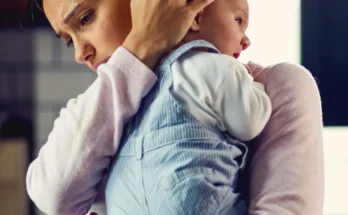When my grandfather passed away, I was devastated—but then came the shock: he’d left me a sizable inheritance. It wasn’t millions, but enough to pay off my student loans and maybe buy a starter home. I hadn’t even known I was in his will. My parents, however, didn’t share my surprise—they were furious. They insisted the money should go into a “family fund” to cover my brother’s tuition, their mortgage, and even “emergency vacations.” I was stunned. This was my gift, my future, and they were already trying to take it.
I tried to explain that I wanted to use the money responsibly—to build a life, not fund theirs. But they called me selfish and ungrateful. My mother said, “If Grandpa wanted only you to have it, he wouldn’t have told us about it.” That cut deep. Suddenly, I was the villain for not handing over what was legally mine. They held family meetings to pressure me. My dad even brought paperwork to transfer part of the inheritance into their account. I refused. That’s when things turned ugly.
My mother looked me in the eye and said the words that shattered me: “If you don’t share, don’t expect to be part of this family anymore.” I couldn’t believe it. The people who raised me were threatening to disown me over money. I walked away. I blocked their numbers, moved out, and used the inheritance to secure my independence. It was painful, but I knew I had to protect myself. I wasn’t just losing money—I was losing the illusion of unconditional love.
Months later, I received a letter from my aunt. Inside was a copy of my grandfather’s will. He had anticipated everything. In his own words: “This gift is for [my name] alone. No one else is entitled to it. If anyone pressures them, they forfeit any claim to my estate.” I cried. Grandpa had seen through the facade and protected me, even after death. That letter was more than legal proof—it was emotional validation. He knew what they were capable of, and he made sure I wouldn’t be alone.
Now, my parents say I betrayed them. But I think they betrayed me first. They saw my inheritance not as a gift, but as a resource to exploit. Their love came with conditions, and when I didn’t comply, they withdrew it. I’ve learned that family isn’t just about blood—it’s about respect. And when that respect is gone, you have to choose yourself. I chose me. I chose peace. And I don’t regret it.
I’ve since built a life on my own terms. I paid off my loans, bought a modest home, and started saving for the future. I’ve surrounded myself with people who support me without strings attached. It’s not always easy—holidays are quiet, and sometimes I miss the idea of family. But I don’t miss the manipulation. I’ve learned to trust myself, to honor my boundaries, and to never let guilt override my instincts.
This experience taught me that money doesn’t change people—it reveals them. My inheritance exposed the cracks in my family’s foundation. It showed me who was willing to stand by me and who saw me as a bank. I’ve stopped chasing approval and started building self-worth. My grandfather’s gift wasn’t just financial—it was the freedom to walk away, the strength to stand alone, and the clarity to see the truth.
I share this story not for sympathy, but for solidarity. If you’re facing pressure from loved ones over money, know this: you’re not alone. Boundaries are not betrayal. Protecting your future is not selfish. And sometimes, the greatest inheritance isn’t wealth—it’s wisdom.


